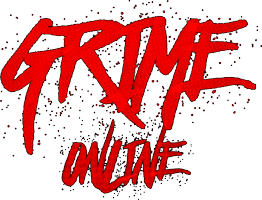When the nominations for pop music’s Brit awards – an event considered so central to public life that it will be broadcast live on terrestrial television – are announced this month, there should be only one question that needs answering. Will the UK’s record industry finally acknowledge “grime” as this country’s most significant aural rebellion since punk? It certainly should. When last year’s Brit awards failed to nominate a single black artist in any major category, there was a chorus of outrage. Boycotts were threatened, and the hashtag #BritsSoWhite went viral. In his profanity-peppered rap One Take Freestyle, grime’s Stormzy splattered the music establishment with imprecations; “embarrassing” being the most printable. This year grime, wreathed in strong London accents and strobing bass lines, is officially the Next Big Thing. The Brits have recruited new judges who promise to be in tune with music’s changing face. Grime’s rise – from angry underground soundtrack to British pop royalty – became obvious last year when the artist Skepta’s Konnichiwa beat David Bowie to the £25,000 Mercury prize.
Grime, with its recognisable staccato beats and machine-gun rapping, became popular in 2003 with rapper Dizzee Rascal’s debut album, Boy in da Corner, a shrewd breeze through the mini mean streets of London life. That precociously inventive album also won the Mercury prize in the same year. Despite the early plaudits, grime remained outside the mainstream, revelling in a playful revolt on crowded dancefloors. Its rebelliousness is encoded in its DNA. Born in London estates at the turn of the millennium, grime crackles with the high-rise tension of tower blocks amid shrinking opportunities and limited possibilities. Musically it builds up a sense of claustrophobia. But it has a message of freedom: that one can transcend narrowing horizons and overcome adversity by subverting the power of prejudice. Sometimes ethically problematic, grime is not easy listening. It stands accused of sexism, and stars admit they shouldn’t litter lyrics with the N-word.
As a predominantly black musical artform it was embraced by urban youth and found itself of interest to the authorities, who were accused of racially profiling grime clubs to shut them down. But grime’s defiance – rooted in confrontation over stop and search and rave raids – found wide appeal among a youth robbed of their future by austerity. By 2011 Lethal Bizzle’s Pow! (Forward) was the unofficial soundtrack of the student protests. Five years later grime’s leading artists wear their politics as a badge of virility: speaking out against Syrian airstrikes, reviving anarchist imagery and leading fans at Glastonbury to condemn former prime minister David Cameron in ripe language. Tory culture minister Matt Hancock missed the antipathy: he gave Stormzy a “shout-out” last September. Skepta’s Shutdown, adopted by Black Lives Matter UK, is the genre’s most vivid take on partying as politics. Grime’s credibility is that it rose with little mainstream radio support and few ad campaigns. Shutdown illustrates how an alternative music business was born of indifference. The track reached 39 in the charts but clocked up 25m YouTube views. Skepta runs his own record label, which signed up hip-hop star Drake and launched a mobile phone service. Take note, Brits: grime’s revolution threatens not just to upend an industry – but to take it over.


